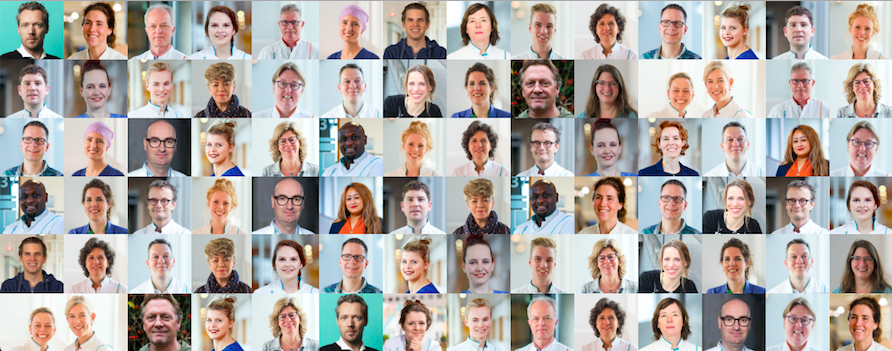Postdoc 'Development of an electroactive microchip that can mechanically stimulate a microarray of self-healable hydrogels'
Postdoc 'Development of an electroactive microchip that can mechanically stimulate a microarray of self-healable hydrogels'
You cannot apply for this job anymore (deadline was 29 Jan 2019).
Browse the current job offers or choose an item in the top navigation above.
Job description
Due to the aging population new innovations are needed for dealing with osteoporosis; the most common disability among today's elderly. A promising strategy to remedy the current situation entails targeted delivery of hydrogel embedded stem cell grafts into sites, which are at high risk of osteoporotic fractures. However, a number of challenges need to be addressed to unleash the full potential of such therapies. These challenges include:
Tasks and responsibilities
- Insufficient mechanical shielding of injected stem cells;
- Lack of understanding of the biological fate of stem cell grafts within load-bearing tissues;
- The "easy-to-damage" nature of conventional hydrogels;
- Low stem cell survival rate.
Tasks and responsibilities
- Synthesize self-healing hydrogels and characterize their mechanical and self-healing properties;
- Use various micro and nanofabrication methods for chip manufacture;
- Develop self-healing hydrogels that can contract and expand in response to a electrical field;
- Develop a mechanical microhip reactor for high-throughput characterization of such self-healable hydrogels;
- Evaluate the bone inducing capacity of the hydrogels;
- Interact with a highly multidisciplinary team of scientists focusing on development of a novel generation of biomaterials for bone regeneration;
- Supervise MSc and BSc students and disseminate the obtained knowledge by scientific publications and presentations at (inter)national conferences, with the ultimate aim to finalize and publicly defend a PhD-thesis.
Specifications
- max. 36 hours per week
- €2750—€4361 per month
- Nijmegen View on Google Maps
Requirements
- A (recently) completed PhD degree in a relevant area: biochemistry, materials science, chemistry, biomedical sciences or similar;
- Preferably experience with development and mechanical testing of advanced and electroactive materials;
- Preferably experience/affinity with synthesis of stimuli responsive carrier systems;
- Preferably experience/affinity with the manufacture of microfabricated systems for tissue engineering;
- Preferably experience/affinity with the working with decellularized tissues;
- Capacity and willingness to connect the fields of biology and materials science;
- Collaborative mentality and team spirit;
- Eagerness to collaborate with external partners;
- A pro-active and independent attitude.
Conditions of employment
Upon commencement of employment we require a certificate of conduct (Verklaring Omtrent het Gedrag, VOG) and there will be, depending on the type of job, a screening based on the provided cv. Radboud university medical center's HR Department will apply for this certificate on your behalf.
Read more about the Radboudumc employment conditions and what our International Office can do for you when moving to the Netherlands.
Read more about the Radboudumc employment conditions and what our International Office can do for you when moving to the Netherlands.
Employer
Radboudumc
The Postdoc candidate will be appointed at the department of Dentistry (research group Regenerative Biomaterials, Radboudumc, Nijmegen, The Netherlands) as part of a multidisciplinary team of researchers in- and outside Nijmegen consisting of polymer chemists, pharmacists, materials scientists, biologists, and dental and medical clinicians. The Department of Biomaterials is the leading research group within the Netherlands that focuses on bioinspired strategies for the design of novel, synthetic bone-substituting biomaterials. As such, the research activities within the Department of Biomaterials cover material development and characterization, in vitro testing, in vivo evaluation, and clinical trials.Radboudumc
Radboudumc strives to be a leading developer of sustainable, innovative and affordable healthcare to improve the health and wellbeing of people and society in the Netherlands and beyond. This is the core of our mission: To have a significant impact on healthcare. To get a better picture of what this entails, check out our strategy.
Read more about what it means to work at Radboudumc and how you can do your part.
Specifications
- Postdoc
- Natural sciences
- max. 36 hours per week
- €2750—€4361 per month
- Doctorate
- 96044-P450279-1
:fill(white)/logos/umcr-en-wide.png)
